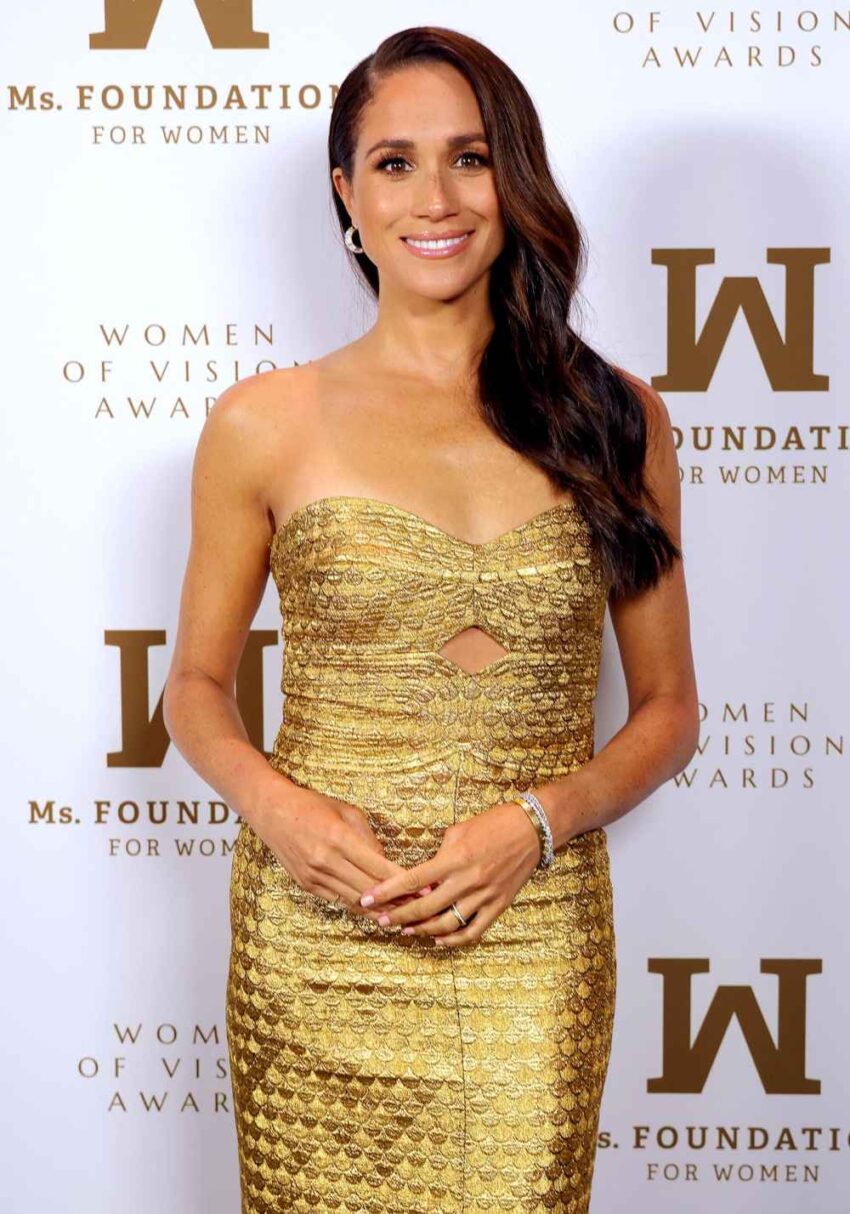Imagine sipping your afternoon tea, only to be disrupted by a fresh wave of royal intrigue.
Whispers are circulating that Archie Harrison, the beloved son of Meghan Markle and Prince Harry, might have been adopted, and that Meghan allegedly declined standard vaccinations for him.
These sensational claims come courtesy of Lady Colin Campbell, a well-known royal commentator famed for her provocative opinions.
But the burning question remains: Are these assertions rooted in truth, or are they merely another chapter in the ongoing saga of Sussex gossip?
Let’s delve into the unexpected twists and try to sift through the facts.
Lady Colin Campbell is no stranger to controversy.
Having penned several books about the British royal family, she has crafted a reputation for her unfiltered, often outrageous takes on the monarchy.
Her latest claims—that Archie was adopted and that Meghan turned down vaccinations—seem designed to shock audiences.
But how much of this is credible information, and how much is just tabloid sensationalism?
With a flair for the dramatic, Lady Colin has become a polarizing figure in royal commentary.
Her insights often straddle the line between scandalous and salacious, prompting us to wonder how she has garnered such influence in the media landscape.
It’s fascinating to consider why her remarks frequently go viral, feeding public curiosity and speculation.
Archie Harrison Mountbatten-Windsor burst onto the scene on May 6, 2019, instantly becoming one of the most recognized babies in the world.
As his parents stepped back from royal duties and relocated across the Atlantic, Archie’s life evolved into a symbol of Meghan and Harry’s departure from royal tradition.
However, with this newfound independence came an avalanche of scrutiny and speculation regarding their parenting choices.
The rumors surrounding Archie’s adoption largely arise from the royal family’s infamous culture of privacy.
When Archie was born, Harry and Meghan opted for a private christening, shying away from the public eye.
While this approach is common among celebrities, it’s quite unusual for royals, prompting theories about the true nature of Archie’s story.
Did their selective sharing inadvertently stoke the flames of these adoption rumors?
And what does this obsession with royal family secrets reveal about our societal values?
One particularly controversial aspect of Lady Colin’s claims is the suggestion that Meghan rejected vaccinations for Archie.
This topic often ignites passionate debates around the globe, as the decision to vaccinate children can be deeply personal.
If Meghan did indeed choose not to vaccinate, could it be a reflection of her Hollywood upbringing and American cultural influences?
After all, alternative health practices are more prevalent in celebrity circles.
This narrative underscores the ongoing tension between royal expectations and personal choices.
Meghan and Harry’s quest for independence has frequently clashed with the rigid protocols of the monarchy, especially regarding child-rearing.
Is Meghan’s modern parenting style simply too progressive for royal standards, or does it signify a broader shift in how royals approach family life?
Why do we find ourselves so captivated by royal parenting?
Royal children symbolize the future of the monarchy, and their upbringing often mirrors our own evolving societal values.
The decisions made by Meghan and Harry for Archie may not just reflect personal choices but also represent a significant evolution in the monarchy itself.
Are we drawn to their journey because it challenges traditional norms, or does it resonate with our own changing family dynamics?
As of now, there’s scant evidence supporting Lady Colin’s claims.
While it’s tempting to indulge in these rumors, it’s crucial to remember that media speculation can amplify unverified stories.
Archie was introduced to the public shortly after his birth, and his parents have embraced a role that allows them to shape his life outside the confines of royal expectations.
In a world where privacy is increasingly rare, Harry and Meghan’s choices might simply aim to protect Archie’s childhood.
Interestingly, the royal family has remained silent on these swirling rumors.
In royal circles, silence can often speak volumes.
By choosing not to address the claims directly, they may hope that the gossip will diminish without further attention.
However, this silence could also fuel more speculation.
Is their lack of response a protective strategy for Archie, or does it create space for the rumors to flourish?
As the Sussexes continue to defy traditional expectations, each new headline reinforces their commitment to forging their own path.
Will their pursuit of independence shield them from the relentless media spotlight, or will it invite even more scrutiny?
Only time will reveal how Archie’s upbringing will influence the royal family’s future image.
What is it about these royal narratives that keeps us so engaged?
Perhaps it’s the allure of escaping reality or the universal themes of family and identity they evoke.
Regardless of your perspective, it’s essential to recognize the power of perception.
The British monarchy has always been a magnet for scandal, from the tumultuous love affairs of Henry VIII to Princess Diana’s public struggles.
Royals are expected to embody perfection, yet their very human challenges make them relatable.
Meghan and Harry’s departure from royal life is no exception; it highlights the complexities of modern royalty, illustrating the collision of tradition and independence.
As we witness Meghan and Harry redefine what it means to be royal parents, they may be setting a new precedent for the monarchy—one that prioritizes well-being and personal choice over public expectation.
Their journey serves as a poignant reminder that our fascination with royal life often reflects our own realities and aspirations.
